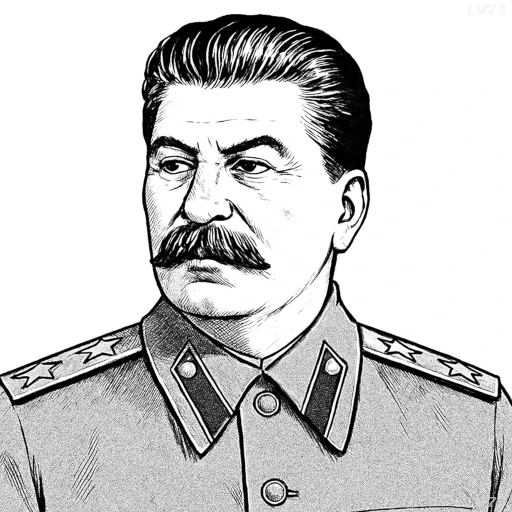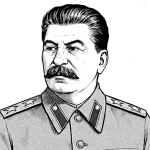“You cannot make a revolution with silk gloves.”

- December 18, 1878 – March 5, 1953
- Born in Georgia
- Politician
table of contents
Quote
“You cannot make a revolution with silk gloves.”
Explanation
This quote underscores the harsh and unyielding nature of revolutionary change, particularly from Stalin’s perspective. Stalin believed that revolution required toughness and determination, a willingness to use force and make sacrifices for the cause. In his view, social and political revolutions, especially one like the Bolshevik Revolution that led to the rise of the Soviet Union, demanded rigorous actions, not diplomacy or compromise. The metaphor of “silk gloves” implies gentleness and a cautious approach, which Stalin saw as incompatible with the violent and disruptive forces needed to overthrow entrenched powers.
Under Stalin’s rule, this philosophy manifested in the great purges and the use of coercion, terror, and repression to maintain control. Stalin’s revolution, while successful in bringing the Bolshevik Party to power, was accompanied by violent policies and state-sanctioned violence aimed at eliminating perceived enemies. The quote reflects the ruthless pragmatism of his approach, where he believed that achieving lasting change required uncompromising measures. The use of such forceful tactics was also meant to instill discipline and maintain strict control over the populace and the party.
In a broader context, the quote serves as a reminder of the extreme costs associated with revolution and the potential dangers of embracing such an approach. While modern revolutions may take different forms, the harsh tactics employed in Stalin’s era raise important questions about the ethical implications of revolutionary methods and the consequences for society. It emphasizes that achieving significant change should never be taken lightly, and that the path to peace and reform requires more than just force—it requires wisdom and restraint.
Would you like to share your impressions or related stories about this quote in the comments section?



